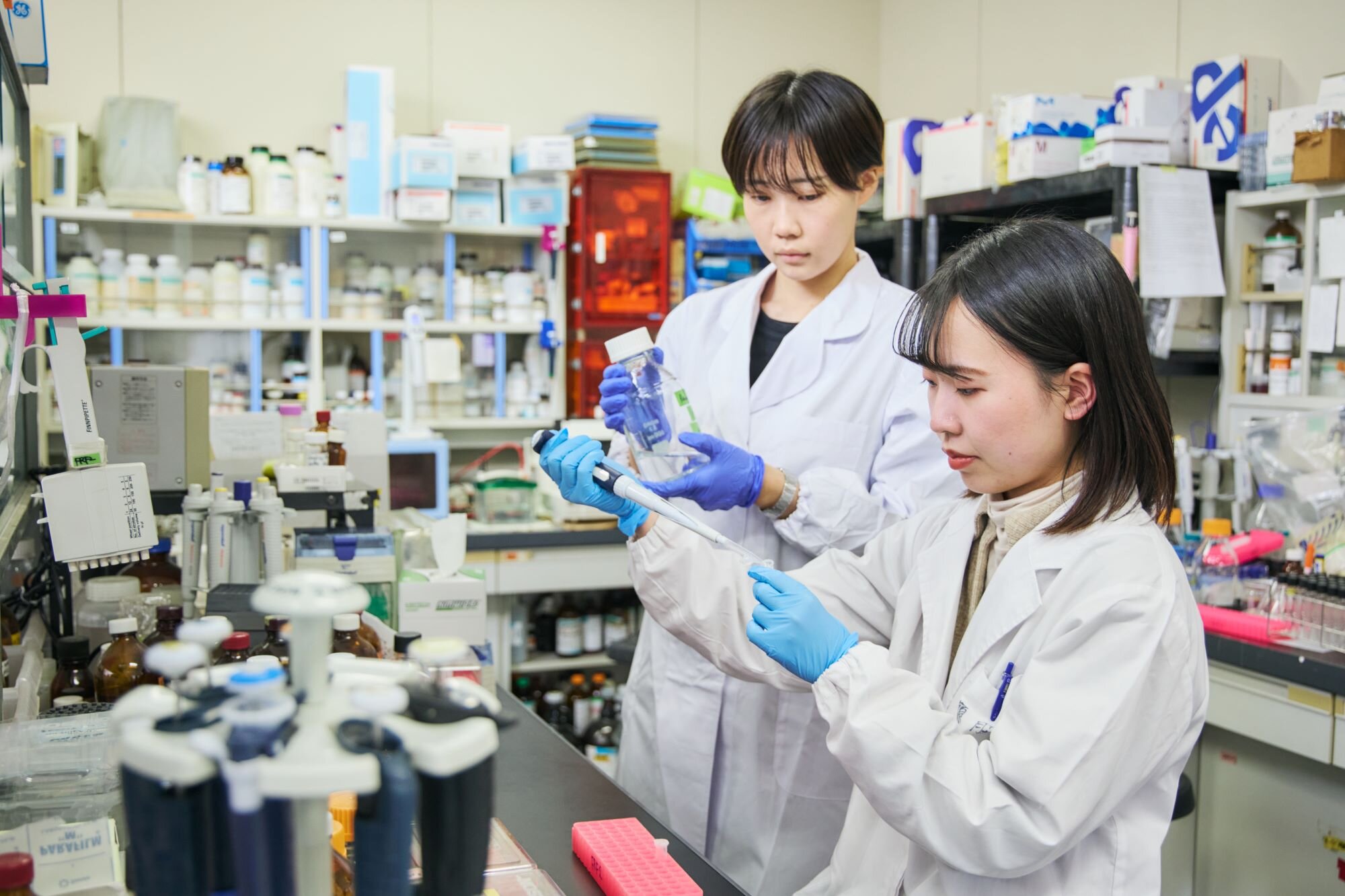Graduate School of Human Science and Environment
Through an interdisciplinary and integrated approach to people and the environment, the Graduate School fosters human resources with advanced insights and research capabilities that can lead to creating new environments. The curriculum suits students keen to tackle societal challenges through a multifaceted approach. Some studies utilize research facilities at the Museum of Nature and Human Activities and the Wildlife Management Research Center, Hyogo.

Course Model
Human Science and Culture
This course is designed to provide students with a comprehensive insight into human beings and academic consideration of what constitutes a more desirable way of living and well-being through a multifaceted view of the impact of lifelong human development, mental and physical health, and culture on our lives in the context of social issues such as the declining birthrate, aging population, and poverty.
Public Policy
Aiming to nurture human resources capable of carrying out research and practice in the field of public policy, this course enables interdisciplinary research based on the knowledge and methodology of social sciences combined with urban and rural planning and other fields.
Architecture and Urbanism
By exploring the relationship between the environment and human life in the form of spatial expanses (interior, housing, architecture, region, and city), this course develops professionals involved in architecture, such as the built environment, building structure, architectural design, interior planning, housing planning, architectural planning, and urban planning.
Nature and Environment
To elucidate various phenomena in the hydrosphere, atmosphere, and biosphere that constitute the natural environment, as well as their dynamics and interrelationships, students study various measurement methods based on forest science and biogeochemistry perspectives. They conduct research through field studies, experiments, and information science approaches.
Food Science and Nutrition
Based on the relationship between humans and the environment, this course aims to create a healthy, rich, and sustainable food environment. By approaching complex areas related to people's food and health from multiple perspectives, we nurture "professionals in food and health" with excellent scientific thinking and practical skills.
Symbiotic Natural History
Based on the conservation and sustainable use of biodiversity, this course considers and practices building desirable relationships between people and nature. Practical research is conducted using nature around us, as well as the research facilities of the Hyogo Prefectural Museum of Nature and Human Activities and the Hyogo Prefectural Wildlife Management Research Center. Graduate School of Human Science and Environment (Symbiotic Natural History)
Advanced Medical Engineering
The course aims to advance students' specialized knowledge and skills that contribute to solutions for various health, medicine, nursing, and nutrition issues. It aims to develop human resources who can independently and systematically use data acquisition and analysis techniques to improve people's health and quality of life. This model trains personnel who understand and master the concepts and basic techniques of health analysis, medical, nursing, and nutritional issues.
Yearly Entrance Quota and Degree
Master
| Department | Yearly Entrance Quota | Degree |
|---|---|---|
| Human Science and Environment | 30 | Human Science and Environment |
Doctor
| Department | Yearly Entrance Quota | Degree |
|---|---|---|
| Human Science and Environment | 6 | Human Science and Environment |
Location
Himeji Campus for Human Science
1-1-12, Shinzaike-honcho, Himeji, Hyogo 670-0092